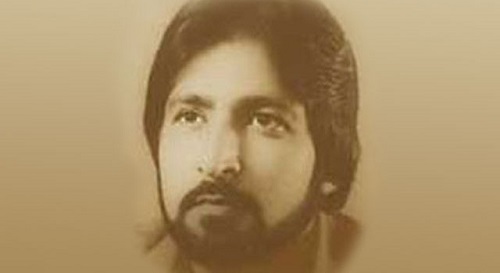This is the story of the (late) Ravindra Kaushik A.K.A Nabi Ahmed Shakir A.K.A ‘Black Tiger’. Most of you have probably heard of him already, courtesy the Ek Tha Tiger controversy. In a nutshell, Kaushik was an undercover RAW (Research and Analysis Wing) agent who spied for India in Pakistan and was later captured and sentenced to death.
However, the life saga of an unsung hero can’t be summed up in a nutshell now, can it? There’s a lot more to it than meets the eye. Keep reading.
1. A thrilling beginning.
It was in 1975 when Kaushik was first recruited by RAW. The 23-year old theatre artist from Sri Ganganagar, Rajasthan, was put through two years of extensive training before being sent to Pakistan as India’s undercover agent. Part of his training included learning Urdu and getting acquainted with everything that Pakistan’s made of.
2. A new religious identity.
A lot more than just his name was changed. Not only was Kaushik rechristened to Nabi Ahmed Shakir, but was even circumcised so that he could play his role as a Pakistani Muslim to perfection.
3. A new life.
After successful enrollment in Karachi University, Kaushik completed his law and went on to join the Pakistani Army. A commissioned officer at first, Kaushik was soon promoted to the rank of Major. Also, Kaushik’s conversion to Islam earned him a family of his own. He married a local girl named Amanat, with whom he fathered a son.
4. A title of honour.
Passing on confidential information to RAW during the period of 1979 to 1983 proved extremely valuable for the Indian defense forces and gave Kaushik the title of ‘Black Tiger’.
5. A tragic aftermath.
Kaushik’s cover was blown in 1983 when Inyat Masiha – an Indian agent sent to get in touch with him – revealed his true identity to Pakistan’s intelligence agencies. Captured and tortured for two years straight at the Sialkot interrogation facility, Kaushik was then housed in Mianwali jail for sixteen years, where he finally succumbed to heart disease and pulmonary tuberculosis.
Kaushik often wrote home – his Indian home – describing the traumatic conditions in which he was held captive:
“Kya Bharat jaise bade desh ke liye kurbani dene waalon ko yahi milta hai?”
After his death, Kaushik’s family left no stone unturned in trying to get the respect their son deserved. However, all they received was a monthly pension of Rs. 500 from the Indian Government.
Even after death, Kaushik wasn’t given the honour he so deserved for his unconditional service to the country. His burial behind the jail where he was held captive is a glaring testimony to this fact.
Originally posted by Indiatimes


